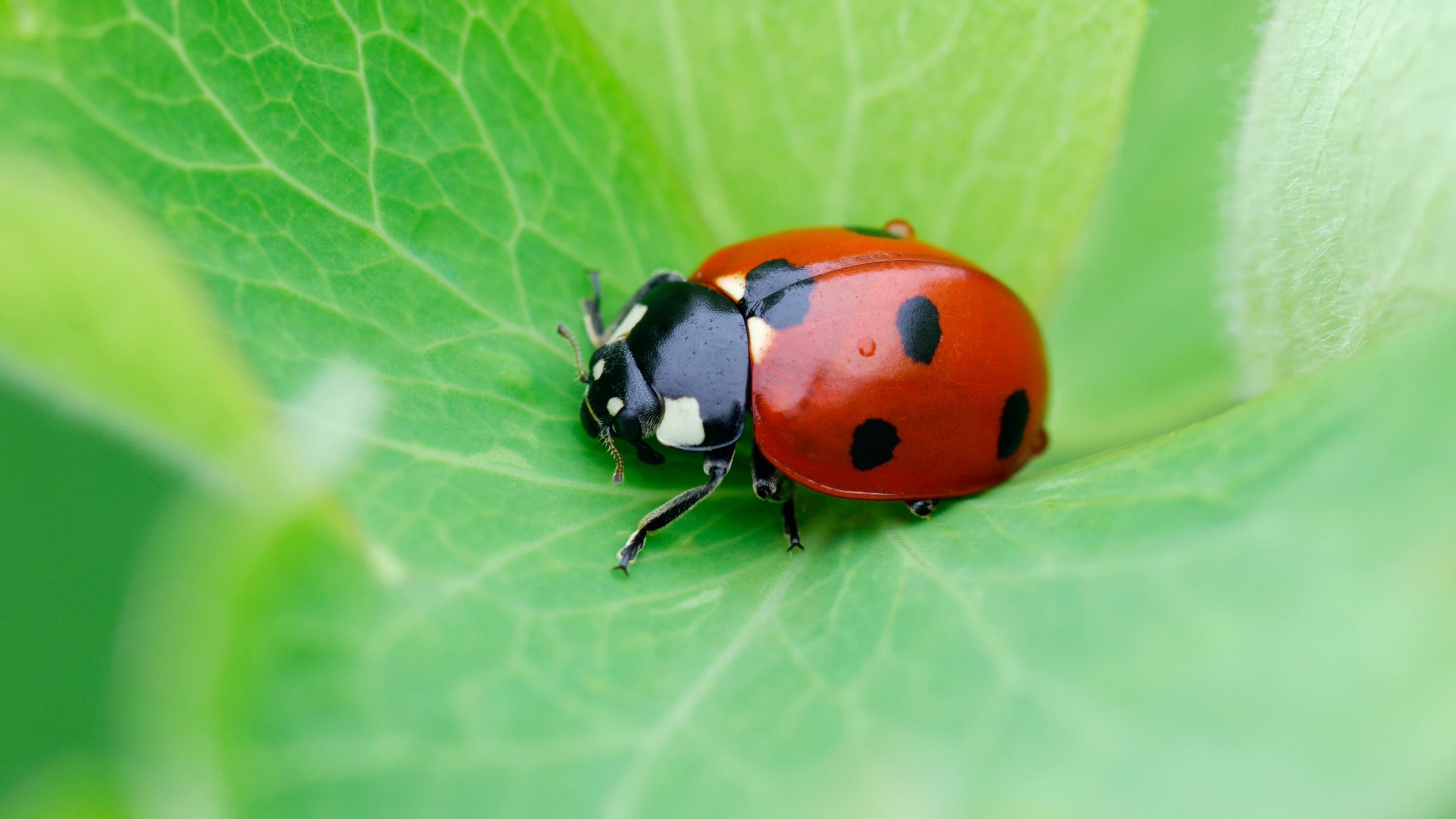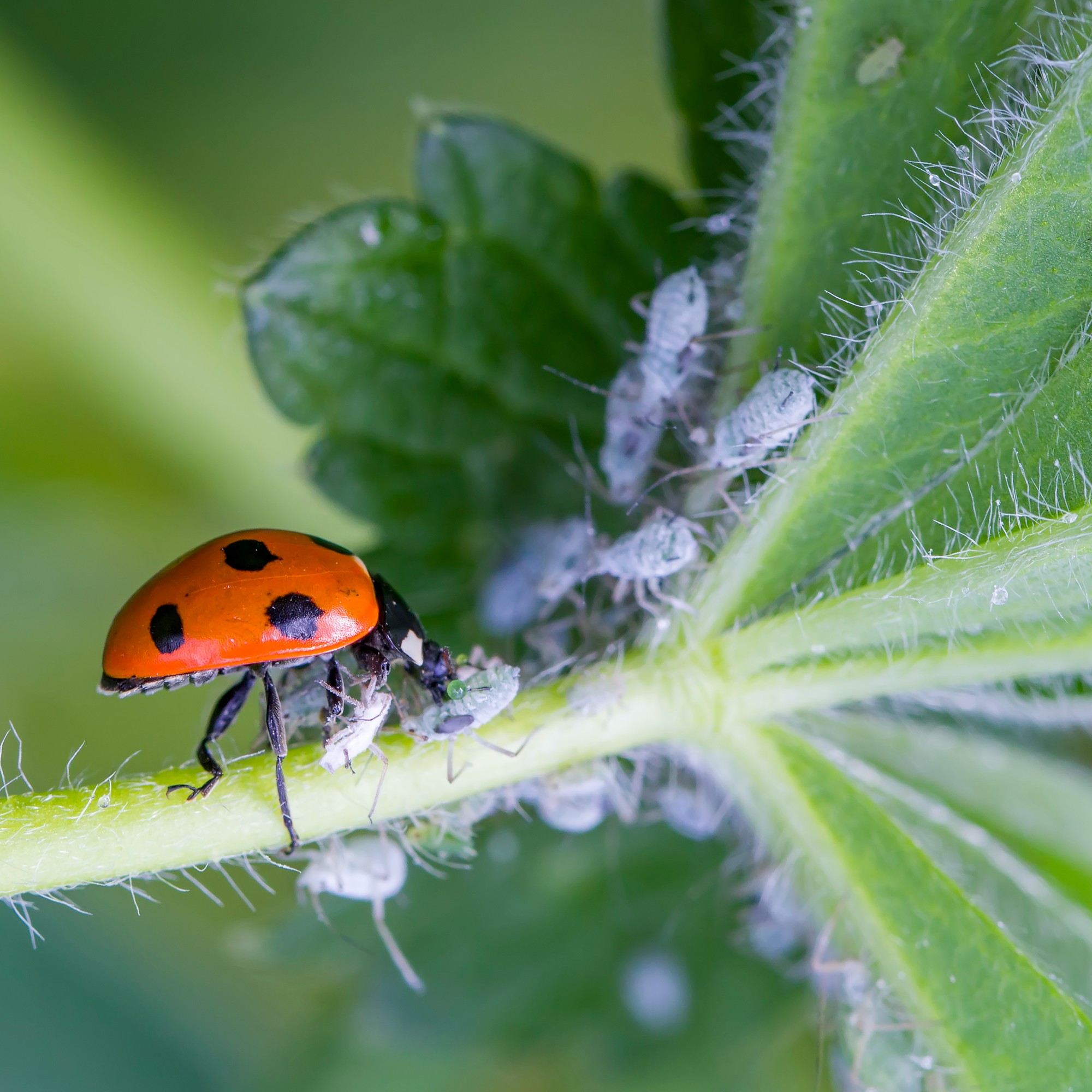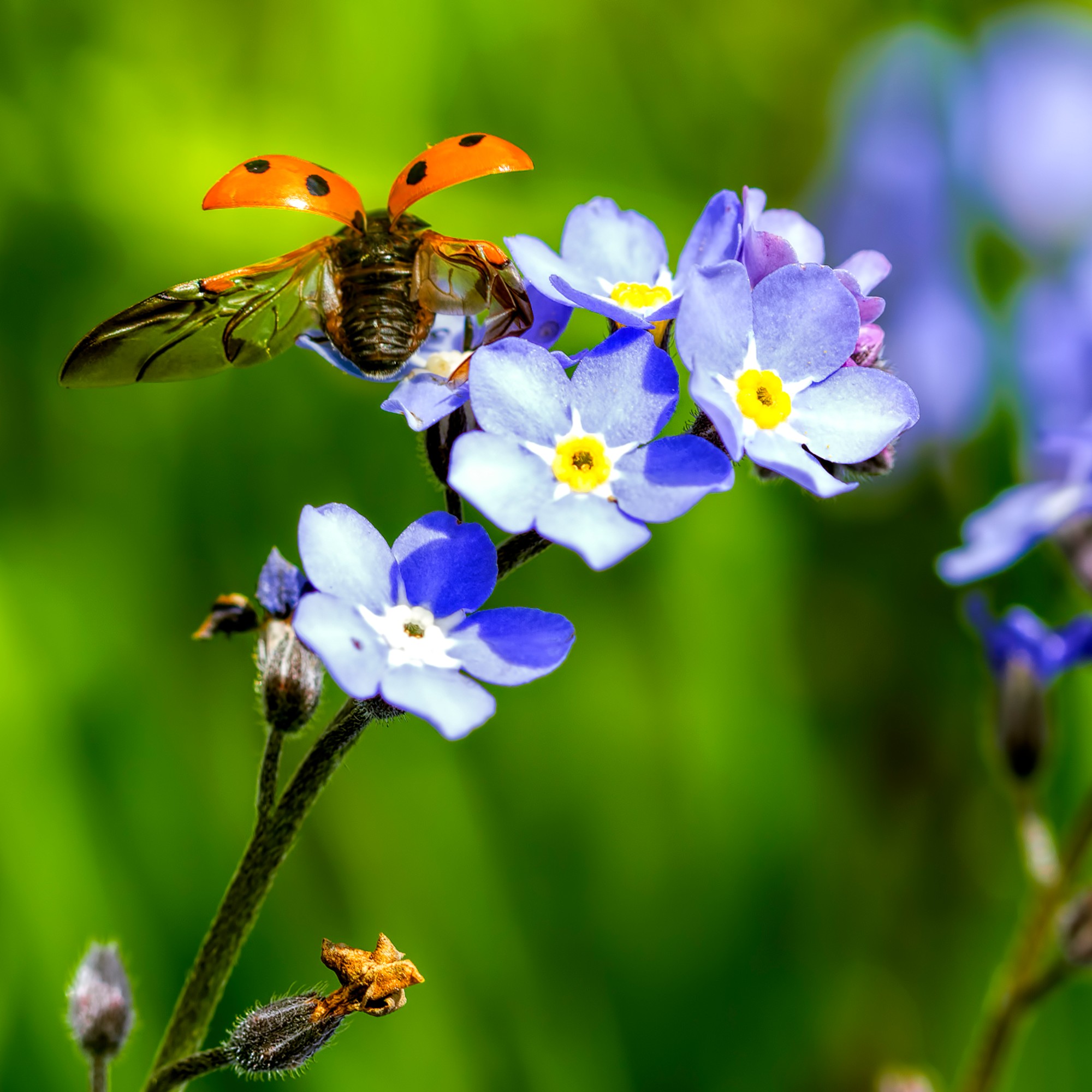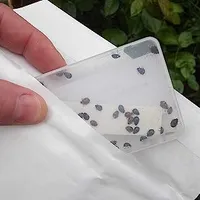Gardening experts reveal nature's secret weapon to get rid of aphids in your garden
Tap into nature's arsenal and embrace its natural pest control team


Sign up to our newsletter for style inspiration, real homes, project and garden advice and shopping know-how
You are now subscribed
Your newsletter sign-up was successful
Struggling with aphid woes? Gardening experts reveal the use of ladybirds to control aphids and how to give yourself the upper hand by utilising nature's own pest control team.
During the warm and hot summer days that bring the first signs of pests like aphids infesting your garden, you've got to get a little crafty in keeping your plants in tip-top shape. While many may run to companion planting as a solution to deter aphids, did you know that ladybirds are one of the most beneficial insects that'll help you control these pests' populations?
In recent years, many people in the UK have reported a ladybird invasion, and while there was an initial worry that swept many, you can rest assured that ladybirds are doing a good deed in the upkeep of you growing your own fruits and vegetables.

Why experts advise using ladybirds to control aphids
'Typically, aphids don't cause damage if there are just a few of them but, usually, by the time their presence is found, they have formed clusters, which cause the plants' leaves to curl and yellow because they deposit a sticky residue on the stems and the underside of the leaves,' explains Peter Ivanov, gardening and plant expert at Fantastic Gardeners.
'They produce it from the moisture they take from the plants and if it's left untreated, it can turn black and introduce mould fungus. Roses are one of the most targeted species that suffer from aphids. Besides that, the more damage your plants experience, the harder it becomes to control the aphids.'

Peter Ivanov is a gardening and plant expert who has been working at Fantastic Gardeners for 8 years. As one of the company's top-performing experts, he now manages over 6 teams of gardeners, delivering stunning landscape results and fostering a deep connection with nature through his work.

'Often getting rid of aphids involves spraying soap or oils directly onto the affected plants. This has the potential to compromise plant health, which is why ladybirds make a natural and safe method for getting rid of aphids,' explains Steve Chilton, garden expert at LeisureBench.
'It's been studied that they can eat up to 50 aphids a day and their larvae can eat its weight in aphids each day. Some reports suggest that a single ladybird can eat up to 5,000 aphids in its lifetime. Because they're voracious aphid predators, this makes them an efficient biological control method, assures Peter Ivanov at Fantastic Gardeners.
Sign up to our newsletter for style inspiration, real homes, project and garden advice and shopping know-how
Andrew O'Donoghue, co-owner of Gardens Revived adds, 'Releasing ladybirds in your garden to tackle aphids has some awesome perks. Ladybirds are natural predators, giving you pest control without the need for chemicals. They're eco-friendly, budget-friendly, and help maintain a healthy garden ecosystem.'

'Usually, if you have aphids in your garden, ladybirds will be naturally attracted to them. However, you can still put in some extra effort by, for example, purchasing them and introducing them yourself if you suspect you have aphids in your garden. This works specifically well if you have a severe aphid infestation,' advises Peter Ivanov at Fantastic Gardeners.
'Ladybirds can also be stored in the fridge in a state of suspended animation, which is a great advantage as this method is most effective when they're introduced multiple times.'
However, before purchasing ladybirds online or in your local garden centre, be sure to read the reviews and check where they were sourced as some have been known to carry diseases that may affect other creatures.
25 x Live Adult Ladybirds - Natural Pest Control | £17.90 at Amazon
Native British Adalia bipunctata ladybirds in packs ready for release in your garden, with food included.
Additionally, there are some other ways you can encourage ladybirds to visit and stay in your garden. 'In order to collect ladybugs you must ensure your garden provides a safe and habitable space for them to stay. Do this by avoiding the use of pesticides or strong chemicals, creating shelter for them during winter and providing sources of sugar, such as honey or sugar spray,' advises Steve Chilton at LeisureBench.
Additionally, ladybirds are particularly attracted to umbelliferous plants (umbrella-shaped flowers), so consider incorporating the likes of dill, parsley, and coriander in your herb garden ideas to encourage frequent ladybird visits.

'But, here's the catch: sometimes these ladybirds can be wanderers. They might decide to venture off to neighbouring areas instead of sticking around your garden. So, while they're great at their job, you might still need to consider other methods to completely get rid of those aphids,' warns Andrew O'Donoghue at Gardens Revived.
Peter Ivanov at Fantastic Gardeners agrees saying that 'ladybirds will likely abandon your garden if they find nothing to feed on.'
Just remember, careful timing and research are key to making this ladybird army work its magic in your garden.

Jullia was Ideal Home’s Junior Writer from 2022-2024 and the Ideal Home Certified Expert in Training on Vacuums having spent over 60 hours testing different models. She’s always loved all things homes and interiors, graduating with a bachelor’s degree in Architectural Studies from the University of Nottingham where her love for writing blossomed following her internship at ArchDaily. Now focused on home tech and cleaning, Jullia works on writing features and explainers to help people make the most of their home appliance investments, putting the newest launches through their paces. When she isn’t writing, she loves exploring the city, coffee shop hopping, and losing hours to a cosy game or book.
